- Home
- slideshows
- miscellaneous
- 4 astronauts reveal their secrets to surviving months of isolation with other people
4 astronauts reveal their secrets to surviving months of isolation with other people
Scott Kelly: "I binge-watched all of 'Game of Thrones' — twice."

Kelly advises one thing you can do that he couldn't, if you're careful: Get some fresh air.
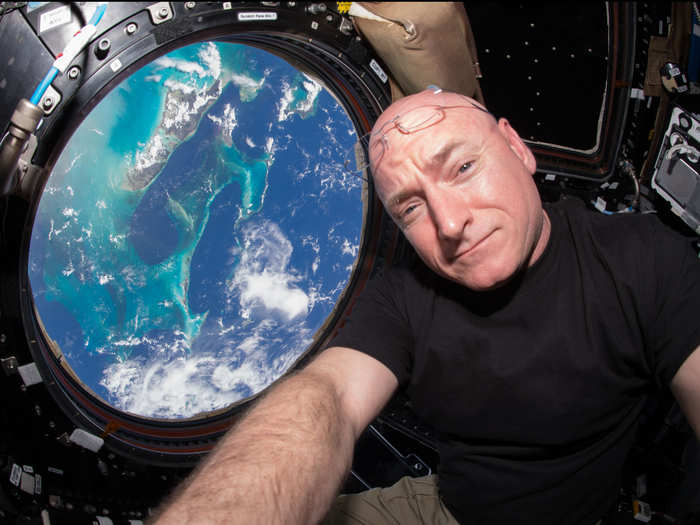
"Go outside," he said. "After being confined to a small space for months, I actually started to crave nature — the color green, the smell of fresh dirt, and the feel of warm sun on my face."
Kelly added that he lugged physical books into space with him (a relatively expensive piece of cargo, given launch prices) for entertainment.
"When you are confined in a small space you need an outlet that isn't work or maintaining your environment," Kelly said. "The quiet and absorption you can find in a physical book — one that doesn't ping you with notifications or tempt you to open a new tab — is priceless."
(You can read the rest of Kelly's advice in the Times.)
Peggy Whitson: "You need to be able to communicate effectively."
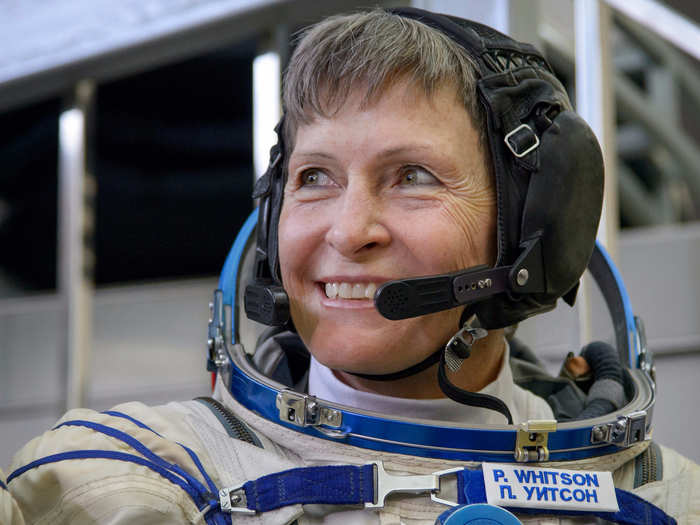
Peggy Whitson, one of the most seasoned astronauts on Earth, told CBS This Morning that extended isolation is "very doable" and that she never got bored on the space station.
"A lot of people are trying to work from home and trying to be parents from home and have a family at home. So it becomes very challenging, but that's just like what we did on board the International Space Station," Whitson said. "Our space station crew became our family in orbit, and we not only had to work with them all throughout the day but we couldn't go home at night."
To foster that interaction, she emphasized it's important to be clear and transparent.
"You need to be able to communicate effectively. First and foremost, that is the most important thing you have to be able to do," Whitson said. "We always have these ideas that we think we're communicating and we have to make sure that our intent that's hidden in our head is actually being communicated."
Whitson says taking stock of your "higher purpose" is vital to winning the day, as is finding silver linings.
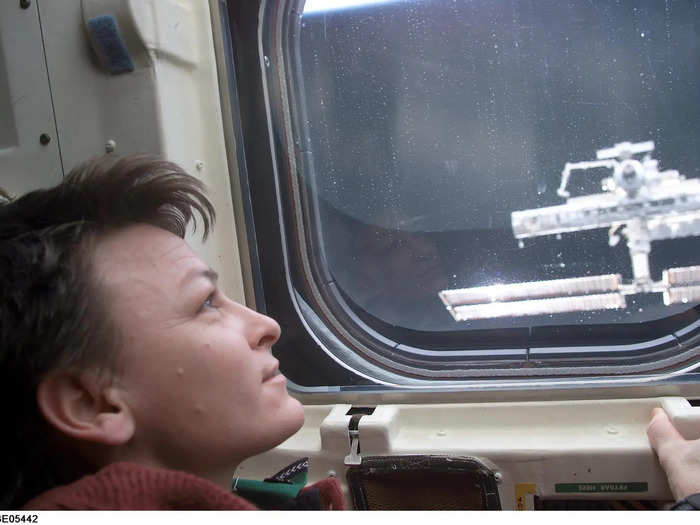
"Recognizing that the team purpose is the most important [thing], COVID-19 gives us a very higher purpose, much like space does," she said. "We are saving lives by quarantining. It is important to understand that bigger purpose and to embrace that purpose to give you reason and rationale for continuing putting up with the situation."
Whitson added that newfound time, at least for some in isolation, is a gift.
"So much of our lives these days is busy and cluttered. What are the things you would do if you had more time?" she said. "What is it that has been the thing that's been in the back of your head that, 'I've wanted to try and do this, but I didn't have time'?"
Anne McClain: Practice "good EB."
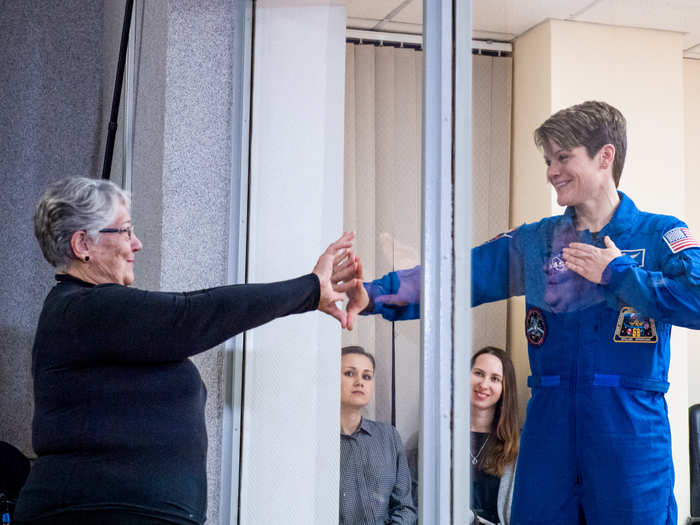
McClain, who recently returned from a months-long stay on the ISS, is a fan of five "expeditionary behavior" (or EB) skills.
The first — echoing Whitson — is good communication. In McClain's mind, that means actively listening, picking up on body language, and identifying, discussing, and working to resolve conflict.
"Talk about your intentions before taking action. Use proper terminology. Discuss when your or others' actions were not as expected," McClain wrote in a post for NASA (which was adapted from a Twitter thread).
Leadership and followership is another EB that McClain said is healthy for confined living.
"Assign tasks and set goals. Lead by example. Give direction, information, feedback, coaching and encouragement," she said. "Ensure your teammates have resources. Talk when something isn't right. Ask questions. Offer solutions, not just problems."
Taking care of yourself and your team is also vital, McClain said, as is respecting differences.
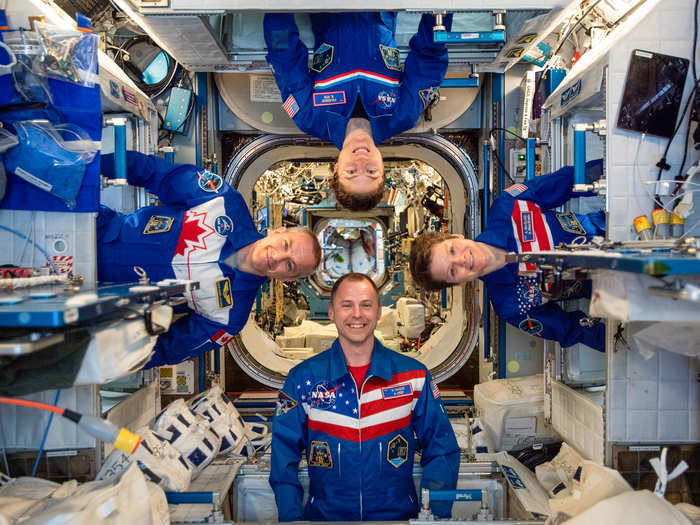
When talking about self-care, McClain doesn't just mean hygiene — also mood and logistics.
"Be open about your weaknesses and feelings. Take action to mitigate your own stress or negativity (don't pass it on to the group)," she said. "Be social. Seek feedback. Balance work, rest, and personal time. Be organized."
To ensure the health of your team — like a family, significant other, or roommates — McClain said it's important to "develop positive relationships. Volunteer for the unpleasant tasks. Offer and accept help. Share credit; take the blame."
She also said cooperation should always trump competition.
"Take accountability; give praise freely. Then work to ensure a positive team attitude. Keep calm in conflict," she said.
Chris Hadfield: "Don't just be afraid of things."

"I've spent a little time self-isolating on board a spaceship," Hadfield, a former Canadian Space Agency astronaut, told viewers in a YouTube video he posted over the weekend.
Hadfield said it's dangerous in space, yet crews "find a way to thrive and be productive that far away from our normal lives."
One mindset he used to achieve productivity in space, and which Hadfield said is also useful here on Earth, is to seek out credible sources to help you understand the risks you face.
"Don't just be afraid of things," he said.
Hadfield also suggested three other rules: choose goals, examine constraints, and — most importantly — take action.
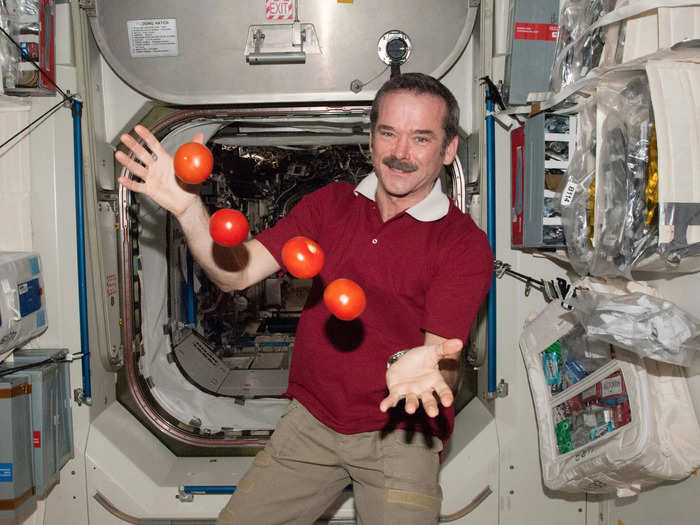
"What are your trying to accomplish? What are your objectives? What's your mission for right now? Make that clear — for this afternoon, for this week, for the next month," he said.
Hadfield added that you should examine what is limiting your ability to do that work — things like money, time, and other constraints.
Once you have that laid out, he said it's vital to take action.
"Start doing things. They don't have to be the things that you always did before," Hadfield said. "It's a chance to do something different."
Popular Right Now
Popular Keywords
Advertisement